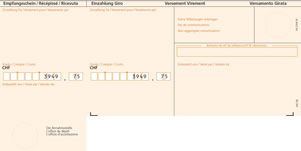Banking
I don’t really know much about the banking system here, but I hear it’s generally very difficult for Americans to get accounts here. The UN agencies provide support for this, and several of them have UBS branches inside the UN buildings, which helps employees open new accounts.
A few random notes:
- Your UBS account package will likely come with a main personal account, an unlimited number of savings accounts, a debit card, and separate Visa and Mastercard credit cards.
- By default, your credit cards have a combined credit limit of CHF 2000. You can request a permanent increase by completing a form and mailing it to UBS.
- You can’t later just add someone to your account. You have to open a new account to do that.
- UBS offers a young professional discount on their account package up to age 32. They may not tell you about it, but if you qualify, be sure to ask for it.

If you aren’t familiar with it (talking to you, Americans), all credit card readers here are all “contactless” meaning you don’t need to insert or swipe your card. Learn the symbol for it, and just touch your card in that area every time you pay for something. The location varies as sometimes it’s on the side, sometimes it’s on top, and sometimes it’s actually on the screen area. If the business is using a handheld machine, the employee will often hand it to you for you to place your card on it. Even better advice: use Apple Pay. It’s easier for so many reasons.
FYI: As an American, if you have a bank account overseas holding more than $10,000, you will likely need to file an annual Report of Foreign Bank and Financial Accounts (FBAR) with the Department of Treasury, which will detail how much money you have in overseas accounts.
Making online payments with Swiss credit cards
Once you place an online order, most websites will then detour you to a separate webpage where you have to confirm the purchase through your bank. By default, this is done by sending a code to the cardholder’s cell phone, which you’ll then enter on the screen. If you’re using the UBS Access app, however, you’ll instead receive a notification on your phone about the purchase. Once you open the UBS Access app, you’ll enter your PIN and confirm the purchase. Then your screen will refresh and your purchase will be complete.
Swiss invoices

At one time, the way to pay for various services such as utilities or home repair/installation was through the traditional “orange slip”.
However, in 2022, they discontinued them, and all were replaced with QR codes. Just use your banking app on your phone to scan the QR code and pay the invoice. (Or, if you prefer, you can do this using the “multimat” machines in your bank.)
Most Swiss companies can be added to UBS’s online billing feature, which will notify you when you have a new bill.
Using American credit cards
Once you arrive in Geneva, you’ll likely be using a non-Swiss credit card. If possible, try to make sure that the card you use doesn’t require you to pay international transaction fees, such as the United Airlines/Chase Visa. Doing this will give you the straight up currency conversion rate without a bunch of extra charges. And if you have one of these cards, and the machine gives you a choice of which currency to charge your card in – always charge the card in the local currency. It’ll ask if you want to charge in USD, and that amount includes an additional 3% fee on top of the conversion.
Many of your cards will allow you to change the address on them to an international address, though you may need to contact the bank to make it happen. Two things to know about this, though:
- When you go back to home, if you need to enter your zip code at the terminal (such as when buying gas), it won’t accept the Swiss 4-digit codes.
- Some American websites won’t take an American credit card with a foreign address.
- Some banks will let you change the address to a foreign one, but they’ll eventually get around to cancelling your card.
Thus, if possible, I suggest trying to keep an address in your home country on your credit card accounts.
Income Tax
U.S. Income Tax
I believe the U.S. is one of three countries in the world that taxes its citizens on income they make when living in another country. But don’t be too discouraged – it isn’t quite as bad as it initially seems.
I won’t go into too much detail, but I will briefly describe what I’ve learned about filing U.S. income taxes from another country. But first, know that I don’t think this applies to any U.S. government employees who are stationed abroad – your rules are different. And also, please don’t consider this legal or accounting advice… much better to consult an attorney or accountant before taking what I say as official.
There are two major write-offs that you get for proving that you live in another country that will work to significantly lower your income, but first you have to prove you live in another country. You can do that in one of two ways: (1) the Bona Fide Residence Test or (2) the Physical Presence Test. In the former, you cannot claim it until you have lived in a foreign country – with the intent to remain there – for at least a 365-day period beginning January 1 and ending December 31. For the latter, you can only claim it for the entire year if you’ve remained outside of the U.S. for at least 329 days of the year. However, you can get partial credit for the portion of the year when you were not in the U.S.
Once you’ve satisfied one of those tests, you’ll get a significant tax deduction using the Foreign Earned Income Exclusion, which for the 2022 tax year was about $112,000. If you’re married and both spouses are working, both of you get this exclusion for your respective salaries, potentially reducing your taxable income by $224,000.
Separately, one spouse can write off your housing expenses using the “Foreign Income Housing Exclusion”, though for some taxpayers, it’ll be a deduction, rather than exclusion. These expenses will include your rent, utilities, property insurance, parking, and household repairs. The amount varies from place to place and year to year, but the limit for Geneva is around $90,000, so go wild! You can’t split it between spouses, and there is a calculation that reduces it slightly, but it’s still very helpful.
U.S. state income tax
Four states – California, New Mexico, South Carolina, and Virginia – do not recognize you giving up state residency just because you’ve left the country. You actually have to establish residency in another state first, and then they’ll agree that you’re no longer a resident. However, proving that you’ve done so is not as easy as changing your address. Until you successfully change your residency, you’ll continue to be subjected to state income taxes as well, though they’ll likely recognize the same exclusions as the IRS with your foreign income.
(The good news, though, is that it’s super easy to renew your driver’s license, at least for Virginia. However, you have to inform them that you’ve moved abroad in the first few months, so don’t forget to do that!)
U.S. citizens working for the United Nations
For those of you in the U.N. system, it gets a whole lot better. Since only the U.S. taxes U.N. employees’ income, the U.N. will reimburse you for whatever you have to pay in U.S. income taxes in an attempt to make it equal for all employees.
Depending on your salary and other factors, the U.N. will likely pay an advance to the IRS each quarter for your projected income taxes. If you’re also required to pay state income tax, such as residents who have just moved from Virginia, they’ll also send you a check each quarter, and you’ll make your quarterly payment directly to the state. But don’t rely on the U.N. getting the payments in on time – they may be late, and you’re the one stuck paying the late fees.
If you start at the U.N. in the middle of the year, you’ve likely paid enough in income tax already that they won’t need to do quarterly payments. They’ll calculate this for you and let you know if it’s necessary.
Once you have completed your federal and state income tax paperwork, you’ll send in a copy to the U.N. tax office. They’ll review your paperwork, ensure you didn’t mess anything up that impacts how much they have to pay, and then they’ll settle up with you. If they overpaid during the year, which means you’ll receive a refund, you’ll likely just be asked to carry the amount to the next year. But if you underpaid, you may get more money back from them, which you’ll use to pay your income taxes. The goal of the whole process is to put you in the same tax position as you would be in if you had received no money from the U.N.
Because the whole process takes a while, you’ll want to get everything together early. The IRS and probably all states give you an automatic extension (no need to request it) if you live abroad, but you can expect the U.N. tax unit to take a long time to process it. Just be sure to file as your state requires when using the extension – Virginia, for example, requires it to be filed by mail, and you have to write a statement certifying that you live overseas.
I did hire an accountant to do our taxes the first year because I was a bit unsure of how all of this works. However, I’m not recommending him here because he was absolutely awful. Had I not checked each item of the forms line-by-line, we’d have paid thousands more in taxes than we needed to. Be sure to find a preparer that knows how to do taxes for citizens living abroad, and if you’re paying state taxes, someone who knows your state laws as well.
Swiss income tax
Not my area of expertise, but here’s a good place to get you started.
Just know there’s a lot that may seem very different, such as a wealth tax.
If you’re working for the UN as professional staff (“P staff”), there’s no need to file income taxes in Switzerland.


